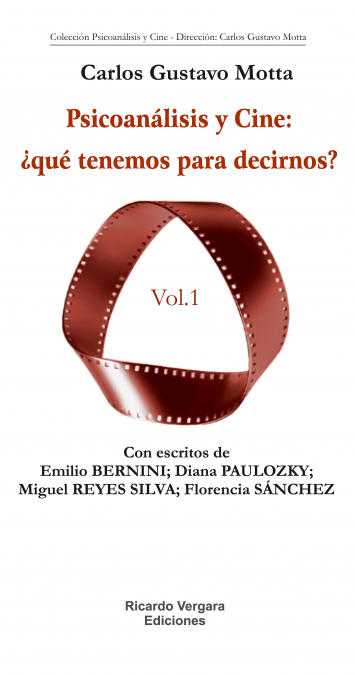
 Donde los libros
Donde los libros
 Librería 7artes
Librería 7artes
 Librería Elías (Asturias)
Librería Elías (Asturias)
 Librería Kolima (Madrid)
Librería Kolima (Madrid)
 Librería Proteo (Málaga)
Librería Proteo (Málaga)
Leer una expresión artística no es someterla a la operación psicoanalítica que sostiene que seguramente el realizador quiso decir otra cosa. Esta metodología va en contra del cineasta y del Psicoanálisis mismo.Dicha visión pseudo-intelectual no comprende lo difícil que es dirigir una película: ajustarse al guión; realizar la pre-producción; encontrar el casting adecuado renunciando a los actores principales que el director soñó, las semanas de filmación, la filmación en sí, lidiar con el personal y con las cámaras. En definitiva, costos, costos y más costos, económicos y de los otros. Además el director deberá atender el área de post-producción, que se complejizó aún más a partir de los formatos de las películas y los avances tecnológicos, y la distribución de la obra ya finalizada. Si para Freud las tareas imposibles se ubican en la tríada gobernar-educar-analizar, es porque no conocía el desarrollo de la realización de un film.Jacques Lacan, a lo largo de sus Escritos y Seminarios, aplicaba referencias del cine que las empleaba para enriquecer su teoría. Mientras que en un dispositivo psicoanalítico escuchamos al analista decir Hable o Por hoy dejamos... , en el set el director expresa Cámara! Acción! para que al final de la secuencia exclame Corte! En ambos casos siempre habrá que empezar.Lo hacemos a partir de este texto inaugural donde otros colegas se interesan por el discurso que el cine provoca. Algunos de ellos son psicoanalistas, otros estudiosos de la filosofía. Gracias a la iniciativa del editor Ricardo Vergara, hoy contamos con este volumen que pretende ser serie y así intentar responder el interrogante del título mismo de esta publicación, pero avanza aún más en relación a la dedicación personal de trabajar esta intersección Psicoanálisis Cine (así decididamente escrito) para que la misma se proyecte a un itinerario donde lo inconciente se encuentre presente y el film será la excusa ideal para situar sus fundamentos teniendo en cuenta que si el Psicoanálisis no se reduce al término Inconciente, el Cine no se reduce a la imagen. 4